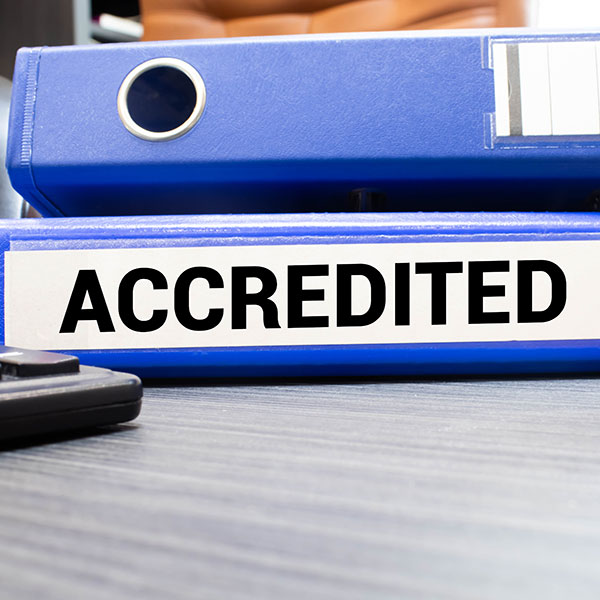
What Is the Degree for a Licensed Addiction Counselor Colorado?
The profession of addiction counseling is both highly important and rapidly evolving. Addiction and substance abuse continue to devastate the lives of hundreds of Coloradans, making the services provided by licensed addiction counselors more in demand than ever.
These professionals play a critical role in helping individuals overcome addictive behaviors through support, counseling, and tailored treatment plans.
As the need for skilled addiction counselors grows, many individuals are exploring this rewarding career path.
If you’re wondering what it takes to become a Licensed Addiction Counselor (LAC) in Colorado, the journey begins with understanding the educational requirements.
Becoming an LAC involves earning the appropriate degree, completing necessary training, and obtaining certification, all of which are designed to equip counselors with the skills and knowledge to make a meaningful impact.
Below, we outline the specific degrees required for licensure, the different levels of certification available, and a straightforward roadmap to pursue this promising profession in Colorado.
Whether you are just starting your academic journey or seeking to enhance your qualifications, this guide offers all the essential information you need to succeed as a Licensed Addiction Counselor.
Read on to explore degree options, understand the required coursework, and learn how to achieve licensure in this high-demand field. With the right preparation and dedication, you can make a significant difference in the lives of those struggling with addiction in Colorado.

What is the degree for a licensed addiction counselor Colorado
What is a Licensed Addiction Counselor?
The LAC is a well-trained professional who assists an individual in overcoming his or her substance addiction.
Such counselors use different evidence-based techniques and therapeutic approaches that can help clients explore the root of their addiction, better identify coping mechanisms, and establish an individual recovery plan.
In Colorado, LACs are important in combatting widespread issues brought about by substance use disorder and enabling individuals to reclaim their lives.
LACs work in various settings, such as clinical settings, rehabilitation centers, hospitals, and private practice. They also work with other professionals, like physicians, psychologists, and social workers, to ensure that the services provided are indeed appropriate for each client’s specific needs.
They are also helpful in providing support to families by educating them about addiction and, when appropriate, involving them in the recovery process.
In addition to direct care, licensed addiction counselors in Colorado are typically involved in community outreach and advocacy.
They work on raising awareness about addiction, treatment options available, and combating the stigma associated with substance use disorders.
Such professionals make all the difference in the lives of the people and their communities with such work as they help build healthier, more resilient futures.
The work an LAC does is both specialized and deep in its impact. Becoming an LAC in Colorado means a practitioner must adhere to strict educational and licensing guidelines for knowledge in care with effectiveness.
It is for this reason that such intense preparation underlines the critical function one holds within dynamics that surround the problems of addiction and recovery.

What is the degree for a licensed addiction counselor Colorado
Licensing Levels for Addiction Counselors in Colorado
In the state of Colorado, the career path to addiction counseling is clearly defined through three levels of certification and licensure.
Each level is designed to prepare counselors with progressively advanced skills and knowledge to meet the diverse needs of their clients.
These levels also reflect a progression in responsibility and education, thus allowing professionals to build their expertise and career opportunities as they progress.
Certified Addiction Technician (CAT): The Certified Addiction Technician is the entry level of certification for addiction counselors in Colorado.
For this level, one has to have a high school diploma or its equivalent.
Additionally, they must complete specific coursework in addiction counseling that provides foundational knowledge in areas such as ethics, client care, and understanding addiction.
CATs often work under supervision to support basic counseling tasks, playing a supportive role in treatment teams while gaining practical experience in the field.
Certified Addiction Specialist (CAS): The Certified Addiction Specialist is the next step in the pathway and requires an associate’s degree in a behavioral health or related field.
The CAS certification expands the foundational skills learned at the CAT level into higher levels of training in such areas as counseling theories, group facilitation, and clinical assessment.
At the CAS level, practitioners can assume higher responsibilities in service delivery and involvement in treatment planning. This level provides a crucial bridge for those who will seek higher certifications.
Licensed Addiction Counselor (LAC): This is the most senior level of addiction counselor licensing in Colorado.
A bachelor’s degree in a behavioral health discipline such as psychology, social work, or counseling will be a pre-requisite to apply for the LAC license.
A holder of the license is readied for the management positions in treatment planning, client assessment individually, and even in the handling of other counselors.
LACs are also able to specialize in areas such as co-occurring disorders or advanced therapeutic techniques, making them a valuable resource in clinical and private practice.
~~~
Each of these licensure levels represents a rung up in one’s career, allowing an individual to advance while attaining the right education, building skills, and gaining experience.
This ensures that addiction counselors in Colorado are prepared for an increasing demand for high-quality, compassionate services aimed at addressing substance use disorders and promoting long-term recovery.

What is the degree for a licensed addiction counselor Colorado
Coursework and Training Requirements
A prospective addiction counselor would need to take seriously rigorous coursework and hands-on training in the degree programs to successfully prepare themselves for a career.
The specific programs prepared the future counselor to tackle the broad complexity of substance use disorder issues and to guide clients appropriately.
The coursework covers all aspects, from foundational principles to advanced techniques, ensuring counselors are well-prepared for the challenges of their profession.
Some of the key areas of study in addiction counseling degree programs include:
-
• Ethics in addiction counseling: Ethical considerations are the backbone of addiction counseling. It is taught to students through this coursework on professional conduct, confidentiality, and the dilemmas that one may face while working with clients. Understanding and adhering to ethical standards will be important in this field for the building of trust and maintenance of professionalism.
• Counseling theories and techniques: In this, a counselor learns various therapeutic approaches such as cognitive-behavioral therapy, motivational interviewing, and person-centered therapy. Such knowledge helps the counselor use appropriate strategies with each client in their journey towards recovery.
• Pharmacology of Substance Abuse: This class will provide in-depth knowledge regarding the impact of drugs and alcohol on the body and brain. Students examine the science of addiction, withdrawal, and the interaction between the substance and mental health diagnosis. The knowledge is important in developing a treatment plan and collaborating with medical professionals.
• Cultural competency in addiction treatment: Addiction touches the lives of everyone from every social background. To this effect, the courses prepare the students to handle various populations while providing service to them. It focusses on gaining knowledge and skills that have to do with cultural, socioeconomic, and individual diversity for compassionate care.
Students are also expected to complete clinical hours and internships under supervision, where they put into practice what they have learned in a real-world setting.
These practical experiences afford the future counselor the opportunity to observe seasoned professionals, interact with clients, and develop their own counseling skills under supervision.
Clinical training can also be a great way to learn about the challenges and rewards of the profession, which helps students build confidence and competence.
These two requirements-which are the comprehensive coursework along with the hands-on training-will prepare the addiction counselors to handle different needs of the clients.
Completion of these requirements prepares the graduates to enter the field equipped with tools and knowledge needed to make a difference in the lives of people suffering from addiction.

What is the degree for a licensed addiction counselor Colorado
Educational Requirements for Each Level
Certification or licensure as an addiction counselor in Colorado requires meeting specific educational requirements for each level of certification.
These requirements are set to ensure that the professional is prepared with the knowledge and skills to help individuals with addiction problems effectively.
The educational standards will increase and be more advanced as candidates progress through the certification levels, which also reflects the increasing complexity of their roles and responsibilities.
Certified Addiction Technician: A high school diploma or equivalent is the foundation educational base for the Certified Addiction Technician.
Apart from the foundation educational base, a candidate shall also obtain state-approved addiction counseling course work that introduces principles related to addiction treatment
Subjects that often consist of topics such as ethics in counseling, understanding the process of addiction, and basic client care.
This level is appropriate for someone who just started working in addiction counseling as it allows a foundational amount of knowledge required to work under supervision in entry-level positions.
CAS- Certified Addiction Specialist: Associate’s degree or its equivalent is needed in any behavioral health area or related field.
The associate’s degree program lasts two years. Students take classes that include group dynamics, understanding co-occurring disorders, and counseling techniques.
Apart from the degree, there are more courses and fieldwork specific to addiction, which helps a person get real hands-on experience.
The CAS level is one step forward because it helps professionals assume greater responsibility in the care of their clients and planning treatment.
Licensed Addiction Counselor (LAC): Licensed Addiction Counselor is the highest level that demands a bachelor’s degree in any behavioral health area such as psychology, social work, or counseling.
This four-year program is more focused on clinical assessment, advanced theories of counseling, and evidence-based treatment plans.
LACs are also required to undertake a significant amount of supervised clinical hours to prepare them for practice independently.
A master’s degree in a relevant field is also a pathway for individuals interested in more advanced roles or specializations to gain further opportunity and expertise.
The standards for each level of certification or licensure in Colorado reflect an effort toward the preparation of a well-rounded addiction counseling professional.
The requirements ensure counselors are adequately prepared and experienced theoretically and practically to provide quality care to affected individuals and families.
Completing these requirements equips graduates to be meaningfully contributing members who will have long-lasting impacts within their communities.

What is the degree for a licensed addiction counselor Colorado
Accreditation and Approved Programs
The first most important step toward licensure as an Addiction Counselor in Colorado is the selection of the appropriate education.
Accreditation also plays a major role in ensuring that your selected program will not only meet the highest possible educational standards but also align with the state licensing requirements.
In addition, you cannot expect to be licensed without going through an accredited program, which is necessary for addiction counselors in Colorado to practice.
Accredited programs undergo strict scrutiny to make certain they contain intensive and updated training in the addiction counseling specialty.
Such a curriculum covers core topics that will provide skills for competent practice: counseling ethics, pharmacology, cultural competency, and clinical assessment.
Moreover, most of them include practical work, like clinical hours under supervision, to provide field exposure to the candidate.
Colorado has several state-approved programs for addiction counseling to meet different needs and schedules.
Most of these are available at community colleges, universities, and specialized training centers.
Those looking for flexibility can look to the many online programs available, in which students take classes from afar while completing clinical training requirements on their own.
On the other hand, in-person programs may be what students seeking contact with faculty and cohorts are looking for-they tend to be pretty traditional.
Upon identifying an institution, a good thing would be checking if it’s approved by Colorado Department of Regulatory Agencies, DORA, and other relevant accreditation bodies.
This ascertains that it is not just up to standard at the state level but also allows one to qualify and sit for an examination and for licensure when ready. Such institutions usually publicly advertise their approval status on websites and other official sources.
Other than that, support by the program has to be looked into.
Those that are usually accredited include academic advisers, career services, and networking.
These services can be important as you traverse the licensure pathway and your beginning addiction counseling career.
By choosing an accredited and approved program, you’ll be taking a critical step toward a successful career as an addiction counselor in Colorado.
This will ensure not only that you meet the licensing requirements but also equip you with the strong foundation of knowledge and experience that would enable you to excel in this impactful field.

What is the degree for a licensed addiction counselor Colorado
Additional Steps to Become a Licensed Addiction Counselor
Earning your degree is a huge accomplishment and an important step toward licensure as a Licensed Addiction Counselor in Colorado, but it is not the only step. Besides education, there are several other important steps you will need to take in order to become licensed.
These steps will completely prepare you to give quality care to people with addiction problems and meet the professional standards set by the state.
Complete the required amount of supervised work hours: Supervised work experience is a cornerstone in becoming a Licensed Addiction Counselor.
Field training is the area where you put into practice knowledge and techniques learned in your course work in real situations guided by an experienced professional.
Colorado requires a certain number of hours of supervision for each level of certification.
LAC level candidates will typically need several hundred hours of clinical supervision, covering the competencies that a counselor should acquire in assessing the client, formulating a treatment plan, and conducting both individual and group counseling.
This is an invaluable experience in building your confidence, honing your counseling skills, and understanding the nuances of working with diverse client populations.
Pass the Colorado-specific licensure exam: To prove your competence as an addiction counselor, you need to pass a state-approved licensure exam.
This exam will test your understanding of addiction counseling principles, ethics, and best practices, as well as your ability to apply this knowledge in practical scenarios.
The paperwork may include, but is not limited to, addiction pharmacology questions, therapeutic technique questions, and legal consideration questions.
With that, study behaviors may involve reviewing class notes, studying the laws of a particular state, and taking practice exams to ensure readiness for the test.
Apply for licensure through the Colorado Department of Regulatory Agencies (DORA): Once you’ve completed your supervised hours and passed the licensure exam, the final step is to apply for licensure with the Colorado Department of Regulatory Agencies (DORA).
This process involves submitting documentation of your education, supervised work experience, and exam results, as well as completing an application form and paying the required fees.
DORA will vet your application for all the required credentials and, at their discretion, conduct a background check.
If your application is approved, you will be fully recognized as a Licensed Addiction Counselor in Colorado.
These additional steps take some time and effort to complete but are important in making sure you’re fully ready to excel in your career.
With this, you achieve the knowledge, experience, and credentials to be qualified to have a positive impact on the lives of individuals and families suffering from addictions.
Gaining licensure as an LAC is far more than the licensure process alone-it is about the development of the professional who gains a level of trust where hope and assistance are provided for the needy.

What is the degree for a licensed addiction counselor Colorado
Benefits of Becoming a Licensed Addiction Counselor
Indeed, being an LAC encompasses a wide array of benefits, both personal and professional, perhaps making it one of the most rewarding career paths for people of this particular passion.
By being an LAC, you will be very instrumental in helping individuals and families suffering from substance use disorders find their way towards recovery and a better life.
The profession will not only give one an opportunity to touch people’s lives but also offer stability, growth, and recognition in a field that is increasingly important in today’s society.
Making a Difference: Being a licensed addiction counselor comes with the satisfaction of helping someone get through a life challenge like addiction.
You’ll work closely with clients to identify the root causes of their struggles, develop personalized treatment plans, and empower them to build healthier, substance-free lives.
Witnessing your clients’ progress and knowing you’ve played a role in their recovery is an incredibly rewarding experience that few careers can offer.
High demand for addiction counselors in Colorado: The growing need for addiction counselors in Colorado creates significant job opportunities for LACs.
With the community being more aware of the effects and outcomes of substance use disorders, accessibility to more treatment services is also increasingly in demand.
You can expect various opportunities in clinical settings, rehabilitation centers, schools, or private practice according to your choice and interest.
Career Advancement Routes: In the position of a Licensed Addiction Counselor, you have various paths to take toward career advancement. Other certifications, a master’s degree, or specializations in co-occurring disorders or trauma-informed care will advance one to positions like Clinical Supervisor, Program Director, or Consultant.
These opportunities allow one to continually grow their career while staying abreast of the latest in the field.
**Job Stability and Financial Benefits:** With continued demand for addiction counselors, this profession promises great job stability.
Most organizations have good salaries, benefits, and further education opportunities. LAC compensation is particularly good in Colorado, considering their expertise and how vital their role is.
Personal Growth and Development: While the career of an addiction counselor is rewarding, it is equally greatly enriching from a personal standpoint.
You will develop a wide array of skills, including empathy, active listening, and problem-solving, which will be highly valued in both professional and personal life.
The role is appropriately challenging, and self-reflection combined with resilience will go on to serve as a stimulant for growth not only in your professional but also in your personal life.
Addressing a critical need: Addiction counseling is a profession that directly addresses one of society’s most pressing issues—substance use disorders.
By becoming a Licensed Addiction Counselor, you’ll contribute to the well-being of your community and play a key role in reducing the stigma associated with addiction, fostering hope and recovery for those who need it most.
Overall, the benefits of becoming a Licensed Addiction Counselor in Colorado extend far beyond job security and financial rewards.
This career offers the opportunity to create lasting change, build meaningful relationships, and grow both personally and professionally. If you’re passionate about helping others and seeking a career with purpose, becoming an LAC is an excellent choice.

What is the degree for a licensed addiction counselor Colorado
Challenges in the Journey
Becoming a Licensed Addiction Counselor is a very rewarding career, but it comes with its share of challenges.
The most significant hurdle to overcome is the time investment involved in meeting the educational and training requirements.
This may take several years of going to college, completing supervised work hours, and studying for licensure exams, which requires persistence and careful planning.
Balancing these demands with personal or professional responsibilities can be challenging, especially for those who are working or raising a family while pursuing their certification.
Financial investment is another important consideration. Tuition costs, fees for training programs, and expenses related to exams and licensure applications can add up quickly.
While easing this burden is often not possible, there are certain alleviations. Many institutions grant scholarships, grants, and various financial aid exclusively for students within the realm of behavioral health.
Certain employers offer tuition reimbursement or paid internship positions as well, during one’s licensure. Exploring these options earlier in the process could be easier on the finance of it all.
Equally demanding, too, is the emotional nature of the job. As an addiction counselor, you will be in close contact with people who are really in pain, hurt, and struggling in life.
It is not strange to meet some setbacks such as clients going back to their addiction habits or resistance to treatment. Such times can be emotionally draining, and you need to learn ways of maintaining your mental health and wellbeing.
Most find support through professional peer networks, supervision, and self-care practices that help them work through the emotional challenges of the role.
Despite these challenges, most would say that the rewards far outweigh them.
The opportunity to make a meaningful difference in peoples’ lives and contribute to their recovery journey is incredibly rewarding.
For those who are passionate about helping others and willing to put in the effort, all the challenges of becoming a Licensed Addiction Counselor are not only surmountable but also part of what makes the work so impactful and worthwhile.

What is the degree for a licensed addiction counselor Colorado
Conclusion
Becoming a Colorado Licensed Addiction Counselor requires hard work, perseverance, and commitment to helping others. The process involves earning the right degree, extensive training, and licensing requirements-all aimed at preparing one to provide meaningful support to individuals and families impacted by addiction. While the path may be difficult, the rewards are profound.
As a licensed addictions counselor, you are poised to make a very real difference in the lives of those in need. You will guide clients through the process of recovery, aid in developing healthier ways of coping, and work toward a more promising future. It’s a career that will change not only the lives of others but also yours with deep personal fulfillment and growth.
This may be the best time to start if you feel the urge to make a difference. First, explore accredited programs that fit Colorado’s licensing requirements and prepare you with the education and training. If you are starting your career or thinking of making a shift in career direction, addiction counseling offers you a formidable opportunity for a career path.
As the need for addiction counselors increases, your commitment may fill that important gap within your community. Make the first move today and begin a career where purpose meets opportunity, one where you can indeed make a difference in lives.

What is the degree for a licensed addiction counselor Colorado
FAQ Section
Q: Can I be an addiction counselor without a degree?
A: Nope, Colorado requires an associate’s degree minimum for CAS (Certified Addiction Specialist) certification and a bachelor’s degree for LAC (Licensed Addiction Counselor) licensure. That way, counselors are properly equipped with the knowledge and experience needed to provide the appropriate level of care.
Q: How long does it take to be a Licensed Addiction Counselor?
A: The length is going to vary depending on the level sought and personal situations. Getting a bachelor’s degree, supervised work hours, and licensure typically takes 4–6 years. It may take those who begin as CATs a little longer as they build towards the higher certifications.
Q: Are there any online degrees for addiction counseling?
A: Yes, many of the accredited programs offer online classes to accommodate working professionals or people who have a very busy schedule. These online programs offer flexibility to complete coursework remotely, while still meeting Colorado’s licensure requirements. However, supervised clinical hours are usually required to be completed in person at approved locations.
Q: What does it cost to become a Licensed Addiction Counselor in Colorado?
A: The cost of becoming an LAC is pretty different, based on institution and program. Associate’s and bachelor’s degree programs might charge tuition as low as a few thousand dollars and as high as tens of thousands. Additional fees may be licensing examination fees, supervision fees, and application processing fees. Available to assist with expenses are scholarships, grants, and financial aid.
What type of supervised work experience is required? The State of Colorado requires its licensees to complete clinical hours with supervising experience via a licensed practitioner. Addiction counseling activities include a client assessment, treatment plan, and either individual or group therapy under the direct supervision of the supervisor. Depending upon the type of certification one seeks, they would need various hours. In Colorado, more are required by LAC licensees than either of the others.
Q: Can I work while earning my degree and completing supervised hours?
A: Yes, many individuals work in entry-level positions, such as addiction technician roles, while pursuing their degrees and certifications. This provides valuable experience in the field while attending school and can help fulfill the supervised work hour requirements.
Q: Do I need to renew my license as an addiction counselor?
A: Yes, Colorado licensed addiction counselors have to go through periodic renewal. Renewal many times will entail continuing education credits that keep the counselors updated with best practices, ethics, and advances within the profession.
Q: What are the prospects of a Licensed Addiction Counselor in Colorado?
A: The prospects are very encouraging, considering the demand for such addiction counselors is on the rise within hospitals, rehabilitation centers, schools, and even private practice. With increasing attention to mental health and substance use disorder, major opportunities have come into this profession.
Q: Can I specialize as an addiction counselor?
A: Yes, many addiction counselors have specialized areas, such as co-occurring disorders, trauma-informed care, and adolescent counseling. These often require extra training or certifications but surely develop your expertise for better advanced career opportunities.
Q: What is the difference between an LAC and an LPC?
A: An LAC, or Licensed Addiction Counselor, works with addiction and substance use issues, whereas an LPC, or Licensed Professional Counselor, practices with a wider array of mental health diagnoses. There are architects of parallel careers who pursue dual licensure for broadened areas of practice.

